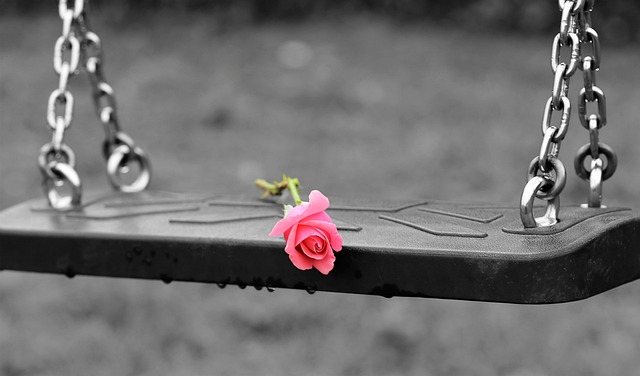“Most of the time, people who die by suicide don’t want to actually die. They just don’t want to be alive, and there is a huge difference” -Roxanne Macdonald

If you are finding it difficult to cope and need help for self harm and suicide, there are a few things you can do to help manage how you’re feeling right now and reduce the urges that you might have to act on the difficult thoughts that you are having. I have listed below some useful ideas and ways of coping with self harm and suicide.
If you are supporting somebody you care about who is experiencing thoughts of suicide or self harming, take a look at some of the information on this page that you might find useful when supporting your loved one or yourself through their journey with Mental Health.
Are you or someone you care about struggling with thoughts of self-injury and Suicide?
Here are some coping strategies for you to try, to help you in those moments when you feel overwhelmed by difficult thoughts and feelings.
MAKE A SAFETY PLAN
This may sound like an odd thing to do when you’re in a crisis, however if you can create a suicide safety plan for when you’re feeling the urge it can help you to stay safe in the moment and reduce the risks to your life.
It can help to think about the following:
Why you want to stay safe? (eg: family, animals, friends)
How can you make your environment safer? (eg: remove objects, call a trusted person)
What things can be put in place to reduce the risk of self harm or suicide attempts?
What things make it harder for you to stay safe? (eg: drugs, alcohol, objects)
What coping strategies have you used in the past that have helped? (eg: call a friend, go outside, distraction techniques)
Reach out to an emergency support service such as Papyrus or The National Suicide Prevention Helpline UK.
DISTRACT YOURSELF FROM THE URGES
It can help to think of useful ways that you might be able to distract yourself when your feeling low and thinking of self-harm or suicide. You could stick some post it notes around the room so you have them readily available when you need them most.
Some ideas might include:
Watching a film that you have always enjoyed or something you used to enjoy as a child
Call a friend or family member who you feel safe talking to.
Go outside and feel the warm sun on your skin, or the cold air in your lungs, the sound of the animals or the traffic.
Put on some music to help lift your mood and shout, dance or sing along.
Play a game on your own, or with somebody else who you trust.
Focus your attention on your surroundings find 5 things you can see, 4 things you can feel, 3 things you can hear, 2 things you can smell, 1 thing you can taste.
REGULAR EXERCISE / GET OUTDOORS
Regular exercise can help to boost our mood, it releases feels good hormones which do exactly that, they help us to feel good! Go for a walk, do an exercise class, or do a workout from home.
Whatever it is that you enjoy, do it regularly to help improve your physical and mental wellbeing. You can even recruit a friend so that you get a sense of social connection too which is also really important for maintaining our Mental Health and Wellbeing.
Research suggests just a 5 minute walk in nature can boost your overall wellbeing, take in the surroundings, the smells, the sounds of the animals in their natural habitats, the hot sun or the cold air on your skin. Sunlight also increases your Vitamin D production which can in turn help you to feel better.
DO SOMETHING WITH A PURPOSE
Trying something new and challenging yourself can boost your self-esteem and confidence, or try something old that you haven’t done for a while and even if you’re not as good at it anymore your body releases happy hormones because it’s something you enjoy.
This may sound like common sense, but many of us end up doing things for nothing other than the thrill of doing something different and trying something new.
Even if it is only doing your shopping at a different supermarket or going for a drive to a place you haven’t seen before, taking part in something for a reason can activate the reward part of your brain which will make you feel a sense of achievement and overall make you feel better about yourself and the world around you.
PRACTICE SELF CARE
If your thoughts are primarily focused on self-injury or suicide, having a regular routine of selfcare exercises can be really uplifting. Whether that’s scheduling in time for a pampering afternoon such as going for a massage, binge watching your favourite tv shows, listening to upbeat music, reading a new book or a long hot bath without any interruptions it’s important to do something for yourself without rushing around and have time that’s scheduled just for you.
When we schedule time for ourselves to focus on selfcare we are telling our brains that we are worthy of this time, we are allowing ourselves to really connect with our bodies and what we need. This helps to reduce stress and burnout and relieve tension and anger that builds us as a result of having no time for ourselves.
WRITE DOWN YOUR GOALS AND ACCOMPLISHMENTS
Focusing on things you have accomplished however big or small, can help you to feel good and get the feel good hormones working. Focusing on the future and the things you would like to achieve can help you to remember all of the things you hope to do one day, try not to focus too much on the details, but just an outline of a plan that you can come back to and add the detail to later.
Remember, this is your life, and you cannot do everything at once, it takes consistent effort and a long-term plan to achieve bigger goals. Think about setting small achievable targets for yourself so that once complete you feel a sense of accomplishment which in turn activates the reward centre of your brain and makes you feel good. This can help when you are feeling negative about your life and thinking of self-injury and suicide.
